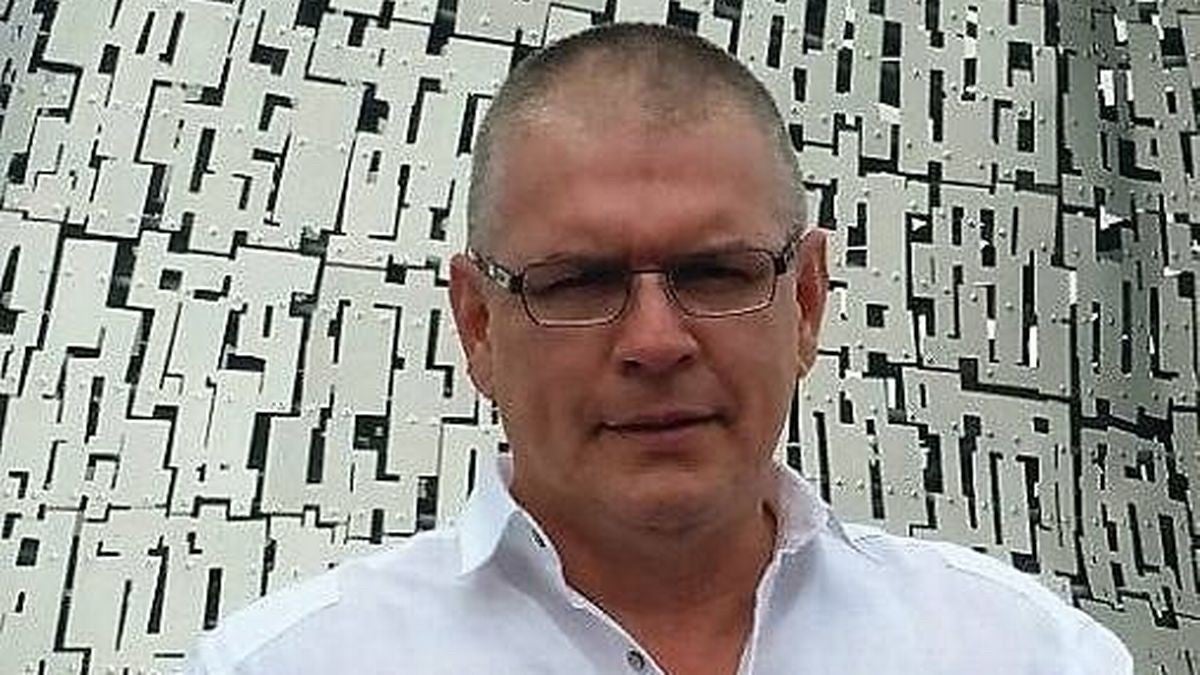Family of man killed by Edinburgh tram demand answers three years on
Carlos Palacio died after being struck by a tram while on his way home from work in September 2018.

Your support helps us to tell the story
From reproductive rights to climate change to Big Tech, The Independent is on the ground when the story is developing. Whether it's investigating the financials of Elon Musk's pro-Trump PAC or producing our latest documentary, 'The A Word', which shines a light on the American women fighting for reproductive rights, we know how important it is to parse out the facts from the messaging.
At such a critical moment in US history, we need reporters on the ground. Your donation allows us to keep sending journalists to speak to both sides of the story.
The Independent is trusted by Americans across the entire political spectrum. And unlike many other quality news outlets, we choose not to lock Americans out of our reporting and analysis with paywalls. We believe quality journalism should be available to everyone, paid for by those who can afford it.
Your support makes all the difference.The family of a man who was killed by a tram in Edinburgh have said they are “at their wits’ end” after waiting more than three years for answers.
Carlos Palacio, 53, was struck as he crossed tram tracks in the city’s Saughton area on September 11 2018.
He had been walking home from work just one month into his new job as a bus driver.
Reports on the collision said the tram driver sounded the warning bell several times before the crash, but also showed that the tram was travelling faster than advised and the emergency brake was applied when it was too late.
Mr Palacio’s death led to immediate changes to improve tram safety, including fitting them with louder bells and clearing pedestrian crossings of all plant structures to improve visibility.
Despite the changes, Mr Palacio’s family said they are still waiting to hear if the Crown Office and Procurator Fiscal Service (COPFS) will prosecute Edinburgh Trams three years on from his death.
In a statement they said: “We are at our wits’ end. We’ve waited and waited and put our faith in the justice system but it gets to a point where you can no longer assume that ‘no news is good news’.
“We need prosecutors to tell us what is going on. If there is a delay, then why? If they need more evidence, then what evidence?
“Covid cannot be the reason behind this delay as our dad died 18 months before the pandemic – surely that’s ample time for the COPFS to have a grasp of the facts?”
The Rail Accident Investigation Branch (RAIB) carried out a full investigation into Mr Palacio’s death, which included reviewing street CCTV, tram dashcam footage and the tram’s onboard data recorder.
Analysis found the tram reached a speed of 41mph and 73 metres (240ft) before the crossing the driver “removed power and applied light service braking”.
We are heartbroken and exhausted and it just feels like no-one is prepared to explain, apologise or even ask if we’re OK unless it’s done via the courts
Investigators established this was the point where Mr Palacio first became visible and until then he could not be seen due to bushes on the footpath.
Fifty-three metres (174ft) from the crossing the driver activated a warning bell consisting of three separate “dings”.
When Mr Palacio did not react, the driver then applied the emergency brake – at this point the tram was 18 metres (59ft) from the crossing and travelling at 38mph.
Using the emergency brake automatically sounded an additional emergency horn and this time Mr Palacio – who was halfway through the crossing – appeared to hear this horn as footage shows he tried to turn back from where he set off, but it was too late.
The RAIB investigation in February 2019 found that although the tram driver had used the tram’s bell to sound repeated warnings, the audible warning “was not sufficiently loud for it to be heard and acted upon by the pedestrian until it was too late”.
The RAIB made four recommendations, which included calling on Edinburgh Trams Ltd to improve the audibility of warning devices and identify risks of off-street pedestrian crossings.
It also called on the Light Rail Safety Standards Board to improve the guidance of warning bells and the layout of tram crossings.
What is going on at the COPFS that means it takes more than three years to make a decision?
Mr Palacio’s family added: “We are heartbroken and exhausted and it just feels like no-one is prepared to explain, apologise or even ask if we’re OK unless it’s done via the courts.
“What is going on at the COPFS that means it takes more than three years to make a decision?
“We need to know what is going on and make sure no others suffer like this in the future.”
A COPFS spokesman said: “We appreciate the impact the time taken to complete death investigations can have on those who have lost a loved one.
“The ongoing investigation into the death of Carlos Palacio involves detailed and careful consideration of complex issues.
“The case team have been in contact with his family and will continue to provide updates on any significant developments.”
Simon Hammond, partner at Digby Brown in Edinburgh, said: “The RAIB report has been available for more than two years so it is easy to see why the family of Mr Palacio are frustrated by the lack of action.
“Most people understand that it’s the ‘not knowing’ that causes the most stress so we will continue to support the Palacio family and help them secure the answers and recognition they deserve.”